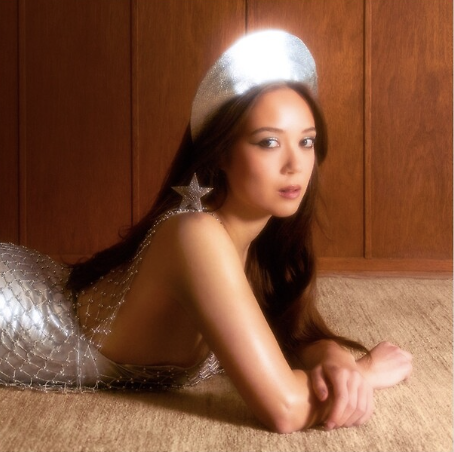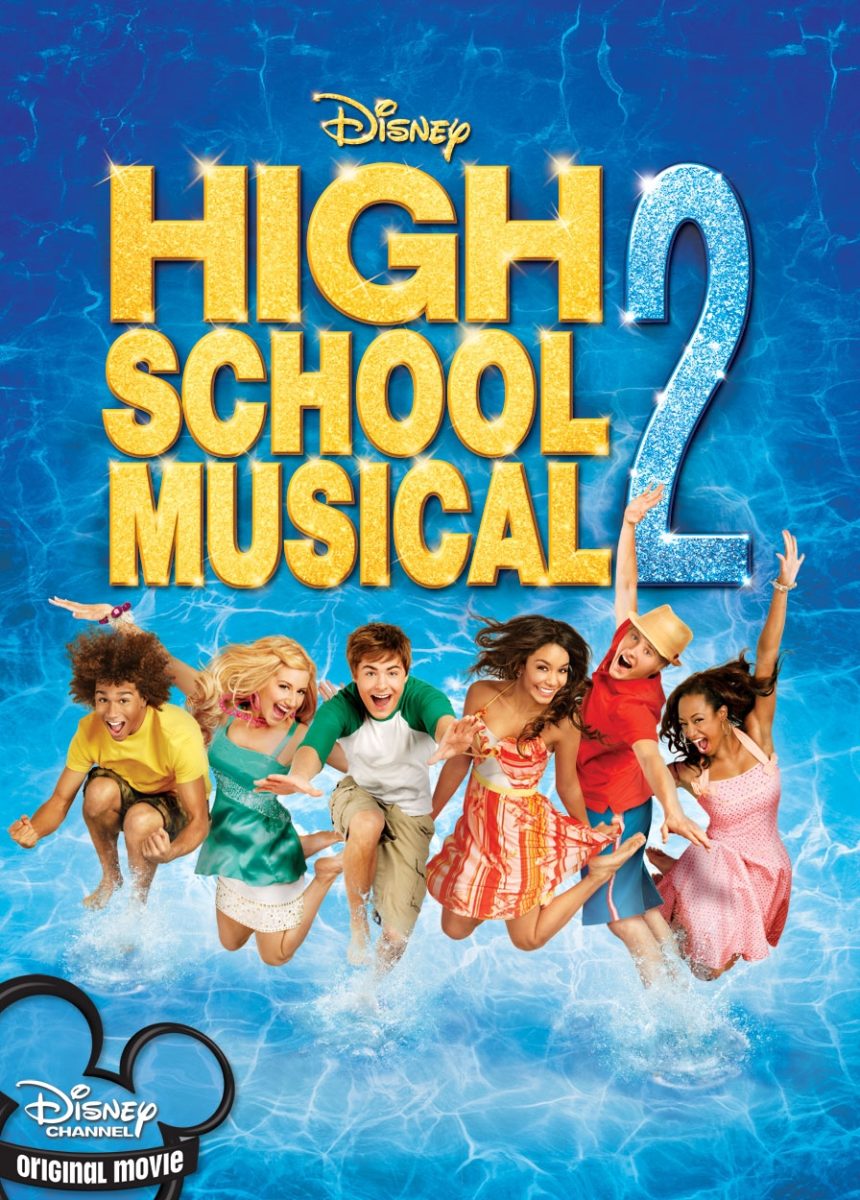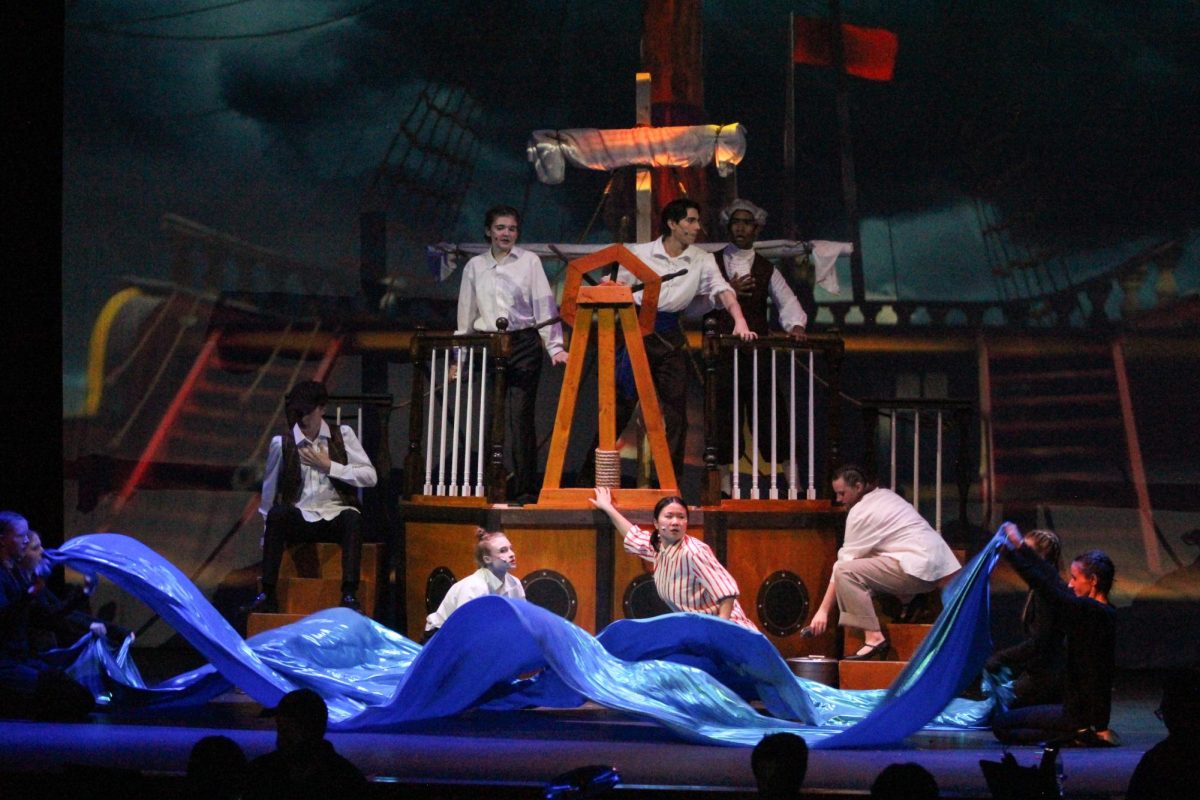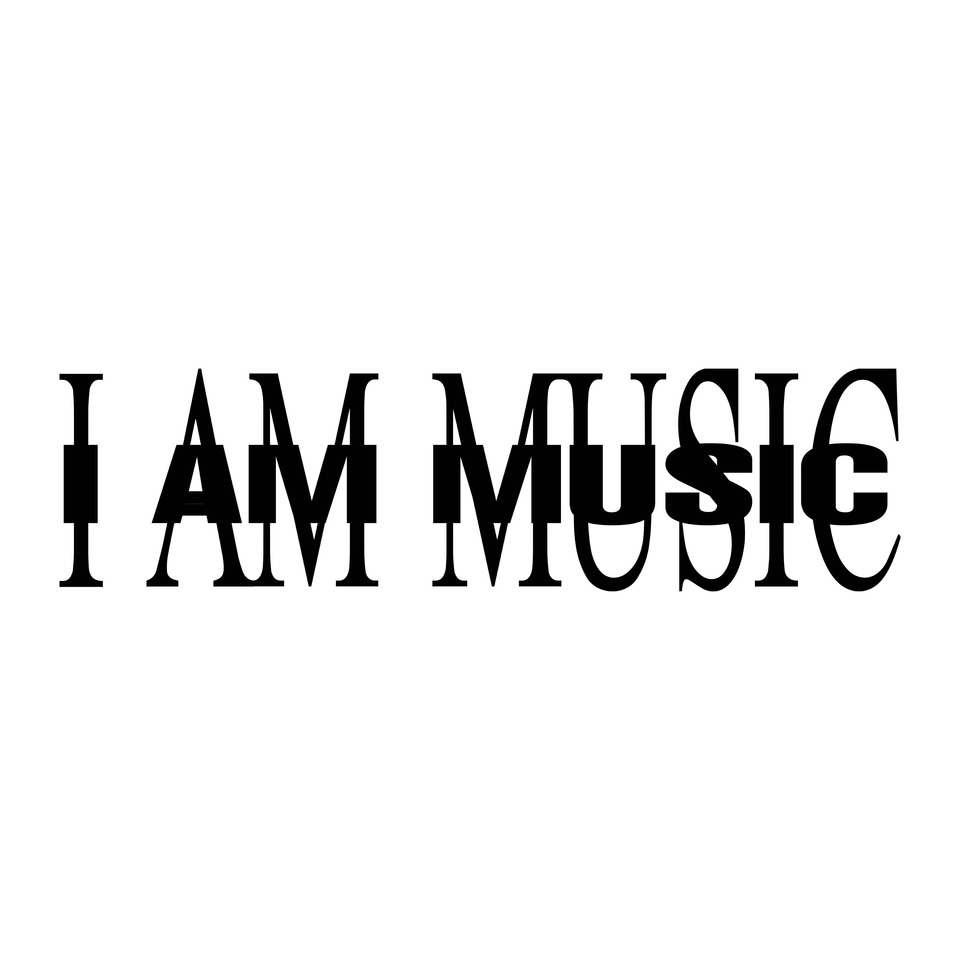‘24
When people talk about the kind of music that the “kids of today” listen to, they often refer to massively popular artists like Taylor Swift, Harry Styles, or Drake: suffice to say, they often aren’t talking about jazz or 1940s musical theater stylings. Icelandic singer-songwriter and multi-instrumentalist Laufey (lay-vey), however, is bringing these pieces of musical vocabulary into accessible, extremely well-executed music marketed towards today’s teens. Her recent album Bewitched, released this past September, is the culmination of this goal.
Laufey is an alumnus of Berklee College of Music in Boston, Massachusetts, and got her musical start playing cello, but her success in the American public eye is much the product of TikTok. Through short-form videos and livestreams, Laufey was able to expose her music, which mixes mid-century theatrical vocal techniques, jazz and bossa nova elements evocative of Chet Baker and Astrud Gilberto, sweeping orchestral music, and modern bedroom pop, to a much broader audience. Her lyrics, predominantly about love, failed relationships, and personal struggles, come off as very sincere and relatable to a wide array of listeners; and while jazz has a reputation of inaccessibility for the “average” person, the pop basis that most of her songs employ has made this album a particularly approachable listen for younger age groups.
Even to those who aren’t Berklee graduates, jazzheads, or musical theater buffs, much of Bewitched feels familiar and often nostalgic. Throughout the album, one may find the warm, understated vocals and swelling strings in songs like “California and Me” and “Bewitched” to remind them of the early years of Disney (think Snow White and Cinderella), or perhaps classic Christmas music such as Nat King Cole’s The Christmas Song album. Ballads like “Promise” and “Serendipity” feel more theatrical, as if part of a larger soundtrack for a musical score.
Going even deeper into Laufey’s influences, she uses barbershop-style four-part harmonization in the album’s opener “Dreamer”, on which the vocals feel very reminiscent of female jazz greats like Ella Fitzgerald. Her current most streamed song on Spotify, “From The Start”, uses a bossa nova chord progression and beat that make it sonically very similar to the bossa standard “The Girl From Ipanema”. The song also references Chet Baker’s distinctive style of scat-singing, a common component of jazz involving vocals with no distinct words, in its own scat-singing break. “Misty” is a cover of a jazz standard, meaning it has been passed down and redone by jazz artists from Lesley Gore to Ella Fitzgerald to Johnny Mathis, solidifying Laufey’s place in the modern jazz community despite not being entirely a jazz artist herself. And despite this huge quantity of places to have drawn inspiration from, Bewitched’s sound manages to be cohesive, distinct, and contemporary in its high-quality production and very 21st century lyricism.
Bewitched is not merely an album by a singular artist, but rather a synthesis of so much of the music that has influenced culture throughout the last century. Jazz, often referred to as a form of American folk music, has an incredibly important historical background, and using notable jazz elements in a pop album aimed at teens and young adults means that a larger group of people may find themselves intrigued by the rich and beautiful past of the genre. The significance of Laufey’s use of jazz and classical in her songwriting is not simply a matter of getting “kids these days” to listen to “real music”, but rather of keeping a piece of musical history alive and thriving in the minds of a younger generation.








